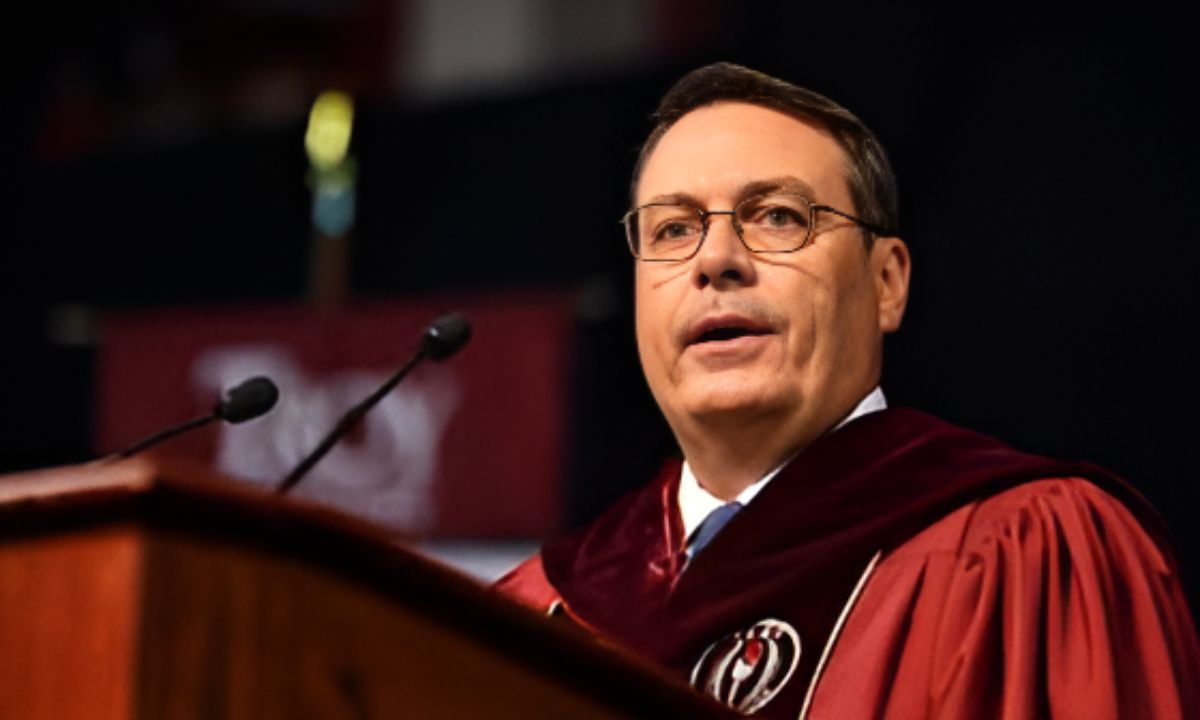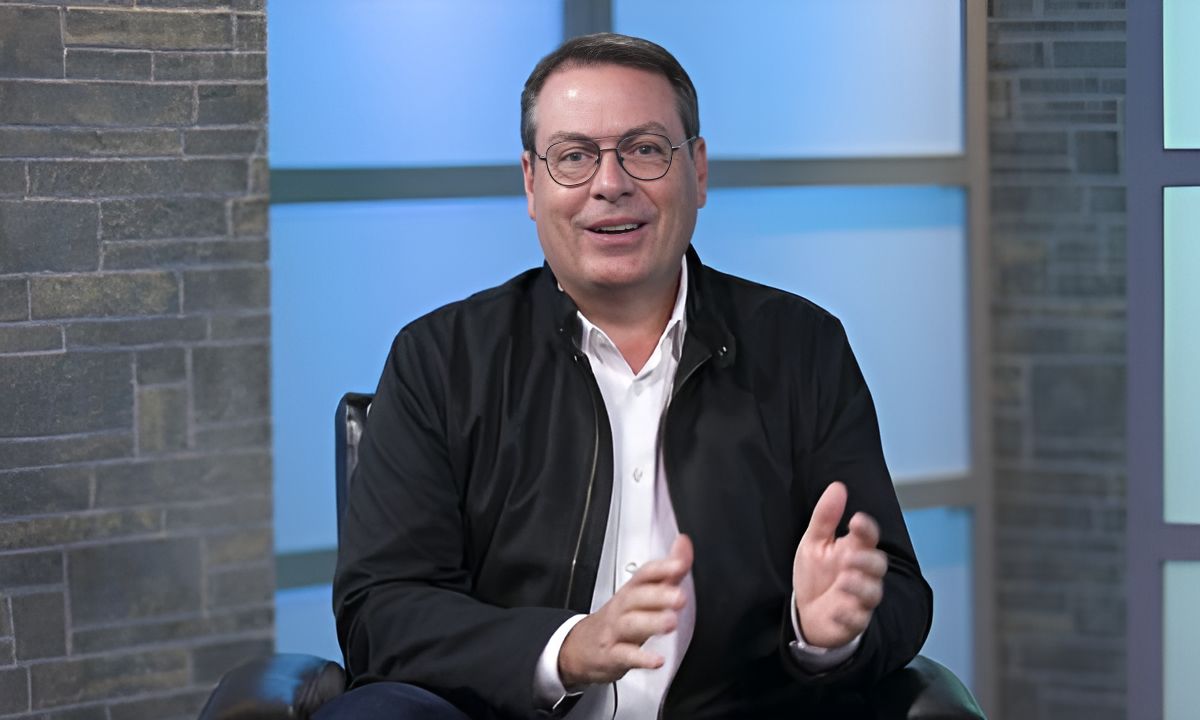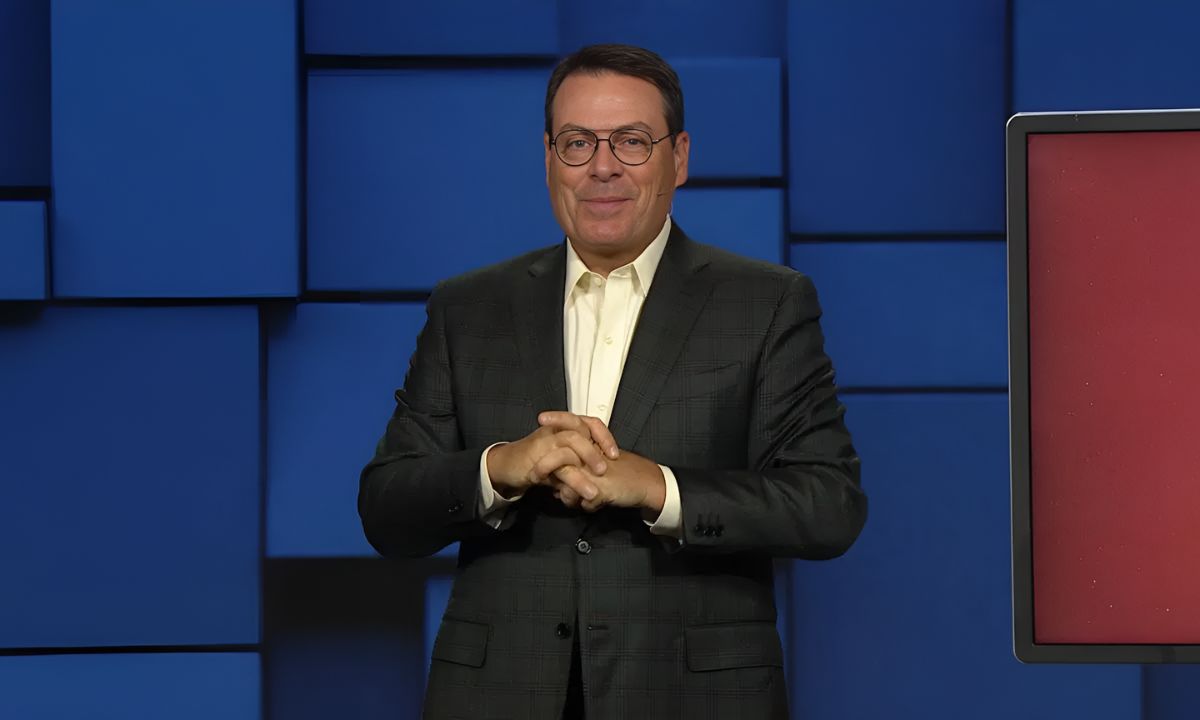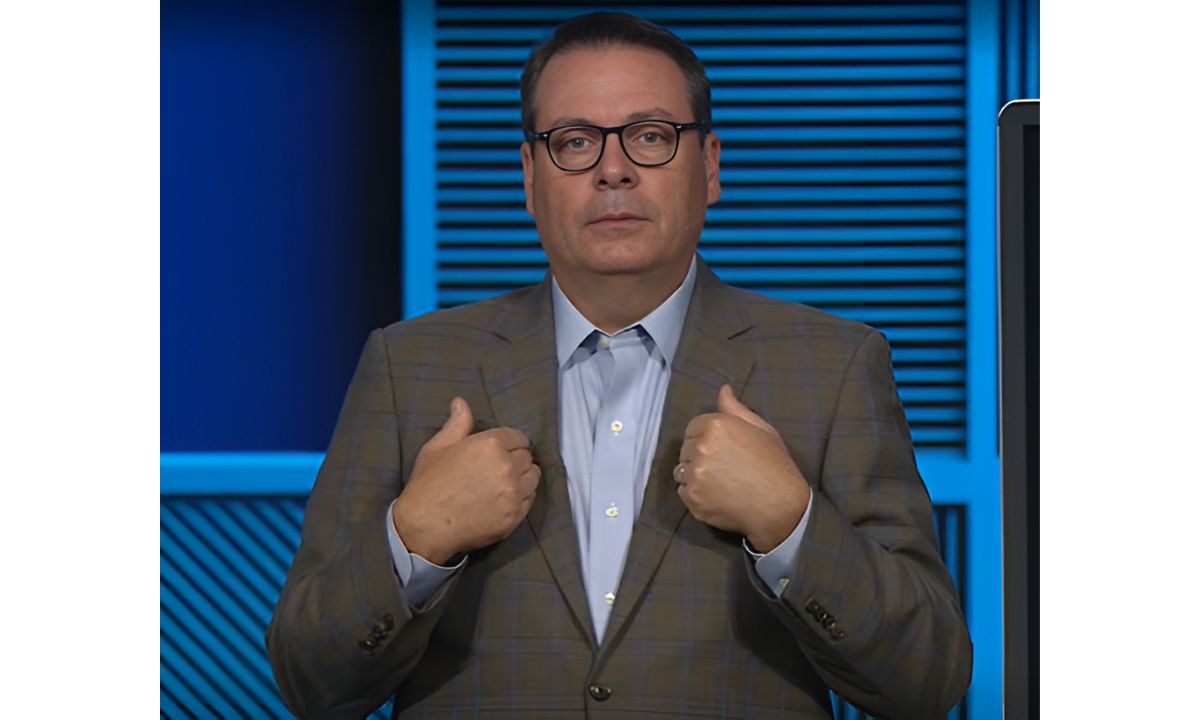In the realm of American megachurches, few names have risen as meteorically as Pastor Chris Hodges and the Church of the Highlands. Yet, as with many high-profile religious leaders, scandal has cast a shadow over Hodges’ ministry.
This article delves into the controversy surrounding Pastor Chris Hodges, exploring the reasons behind the scandal, its impact on the church community, and the subsequent apology.
Pastor Chris Hodges Exposed Scandal
The Chris Hodges scandal erupted in 2020, sending shockwaves through the evangelical community. The controversy began when Hodges liked several social media posts by Charlie Kirk, a conservative political commentator, which were perceived as racially insensitive.
This action quickly escalated as more details emerged about Hodges’ political affiliations and their potential influence on the church’s operations. Church leadership scrambled to respond, while Pastor Hodges himself initially remained silent, fueling speculation and concern among the congregation.
As the story unfolded, public reaction was swift and mixed. Supporters rallied behind Hodges, citing his years of dedicated service and positive impact on the community. Critics, however, called for accountability, arguing that spiritual leaders should be held to a higher standard, especially regarding issues of racial justice and equality.
“The actions of Pastor Chris Hodges are deeply troubling and require a thorough examination of the church’s stance on racial issues,” said Dr. Michael Emerson, a sociologist of religion at the University of Illinois Chicago. “This situation highlights the complex dynamics at play in megachurch leadership and the broader societal context of racial tensions.”
Is Chris Hodges the Founding and Senior Pastor of Church of the Highlands?
Indeed, Chris Hodges is both the founding and senior pastor of the Church of the Highlands. He established the church in 2001, starting with a modest congregation of 34 people. Under his leadership, the Church of the Highlands has experienced explosive growth, becoming one of the largest churches in America.
Hodges’ role goes beyond simply preaching on Sundays. As the senior pastor, he’s been instrumental in shaping the church’s vision, overseeing its expansion to multiple campuses across Alabama, and influencing its organizational culture. His charismatic leadership style and modern approach to ministry have made him a significant figure in the megachurch movement, inspiring other pastors and church planters across the country.
What Does the Church of the Highlands Believe?
The Church of the Highlands adheres to a set of beliefs typical of many evangelical churches. At its core, the church professes faith in the Bible as the infallible word of God, belief in the Trinity (Father, Son, and Holy Spirit as one God), and salvation through faith in Jesus Christ. They practice baptism by immersion for believers and emphasize the role of the Holy Spirit in empowering Christians for daily living.
What sets the Church of the Highlands apart is its ministry approach. The church has gained recognition for its multi-campus model, which allows it to reach diverse communities while maintaining a unified vision. Their emphasis on small group connections fosters a sense of intimacy within the larger church body, addressing a common criticism of megachurches as impersonal.
Community outreach is another hallmark of the Church of the Highlands. Through various programs and initiatives, the church actively engages with local needs, from poverty alleviation to addiction recovery. This hands-on approach to faith has resonated with many, contributing to the church’s rapid growth and influence.
Chris Hodges’ Success and Influence
Before the scandal, Pastor Chris Hodges had built a reputation as one of America’s most successful megachurch leaders. The Church of the Highlands’ growth under his leadership has been nothing short of remarkable, with weekly attendance soaring to over 50,000 across 23 campuses throughout Alabama.
Thousands more view services online, extending the church’s reach far beyond state lines. Hodges’ influence extended beyond the church walls. He’s authored several books on Christian living and leadership, spoken at conferences worldwide, and mentored other pastors through the Association of Related Churches (ARC).
His success story became a model for aspiring church leaders, showcasing the potential for rapid growth and widespread impact in modern ministry.
Potential Causes & Enabling Factors
The Chris Hodges scandal, like many church controversies, likely stems from a complex interplay of factors. The power dynamics inherent in megachurches often centralize authority around charismatic leaders, potentially creating an environment where misconduct can go unchecked.
Rapid growth can outpace governance structures, leading to a lack of robust accountability measures. Moreover, the phenomenon of “celebrity pastors” in American evangelicalism can contribute to a culture where high-profile leaders are insulated from criticism.
When a pastor becomes the face of a successful ministry, there may be institutional resistance to addressing potential misconduct, fearing damage to the church’s reputation or mission.
These factors don’t excuse wrongdoing, but they provide context for understanding how scandals can develop even in seemingly thriving religious communities.
Aftermath and Response
In the wake of the scandal, both Pastor Chris Hodges and the Church of the Highlands leadership were forced to take action. Hodges eventually issued a public statement, apologizing for his social media activity and pledging to listen and learn from diverse voices within the community.
Church leadership announced steps to address racial issues within the church, including the formation of a racial reconciliation task force and a commitment to diversify church leadership. The impact on the congregation and community was significant. Some members left the church, feeling betrayed or disillusioned.
Others grappled with reconciling their positive experiences at the church with the allegations against its leader. The scandal also affected the church’s community partnerships, with the Birmingham Board of Education and Birmingham Housing Authority severing ties with the church’s outreach programs.
Response From Supporters
Despite the controversy, many Church of the Highlands members stood by Pastor Chris Hodges. Long-time church members spoke of Hodges’ positive influence on their lives and families, emphasizing the need for forgiveness and restoration.
“Pastor Chris has been a spiritual guide for our family for years. We’re praying for him and the church during this difficult time,” said Sarah Johnson, a 10-year member of the Church of the Highlands. “We believe in his heart for people and his commitment to growth and change.”
Other religious leaders also voiced support, highlighting the complexity of the situation and the importance of forgiveness in Christian teachings. This response underscores the deep emotional connections fostered in religious communities and the challenges of addressing leadership misconduct in these contexts.
The Crucial Element of Trust
Trust forms the bedrock of any religious leadership, and the Chris Hodges scandal undoubtedly shook that foundation. In the context of a church, trust goes beyond mere reliability—it encompasses spiritual guidance, moral authority, and personal integrity. When a pastor falls short, it can shake the faith of congregants and cast doubt on the entire institution.
Rebuilding trust in the wake of the Hodges scandal will require a multifaceted approach. Transparency about the allegations and investigation is crucial, as is implementing concrete steps to prevent future misconduct. Genuine repentance and changed behavior from Hodges himself will be essential, but equally important is the response of church leadership in addressing any systemic issues that may have enabled the scandal.
Time will be a critical factor in the healing process. Trust, once broken, isn’t easily regained. The Church of the Highlands community will need space to process their emotions, ask difficult questions, and see consistent, positive change before wounds can truly begin to heal.
The Complexity of Scandal
The Pastor Chris Hodges scandal underscores the nuanced nature of religious controversies. Media coverage often simplifies complex situations, while public perception can swing between extremes of unconditional support and outright condemnation. The reality, however, usually lies somewhere in between.
This situation offers valuable lessons for other religious institutions. Implementing robust accountability structures is crucial, as is fostering a culture of transparency where concerns can be raised without fear of retaliation. Prioritizing ethical leadership training can help prevent misconduct, while developing crisis management protocols ensures a more effective response when issues do arise.
It’s also worth noting that scandals in religious contexts often have ripple effects beyond the immediate community. They can shake faith in organized religion more broadly and contribute to societal cynicism about spiritual leaders. This underscores the weighty responsibility borne by those in positions of religious authority.
Is Chris Hodges Conservative or Liberal?
Pastor Chris Hodges is generally considered to hold conservative theological and political views. This alignment has shaped the Church of the Highlands’ demographic makeup and community perception. The church’s teachings on social issues often align with traditional evangelical positions, which tend to be conservative in nature.
While political leanings may not directly relate to the scandal, they can influence how different groups interpret and respond to controversies involving religious leaders. Conservative supporters might be more inclined to emphasize themes of forgiveness and restoration, while critics from more liberal perspectives might focus on issues of power dynamics and institutional accountability.
It’s important to note that the intersection of religion and politics in America is complex and often contentious. The Hodges scandal, occurring within this context, inevitably takes on additional layers of meaning and interpretation depending on one’s political and theological standpoint.
The Road Ahead
As the dust settles on the Chris Hodges scandal, the path forward remains uncertain. Hodges’ apology, which acknowledged his mistake in liking controversial social media posts and pledged to do better, marks a starting point for potential redemption. However, words alone are insufficient—they must be backed by concrete actions and sustained change.
The Church of the Highlands faces the monumental task of rebuilding trust with its congregation while addressing any systemic issues revealed by the scandal. This will likely involve a delicate balancing act between accountability and compassion, justice and mercy. The church must also refocus on its core mission and values, demonstrating that its identity and impact extend beyond any single leader.
Long-term effects on the ministry may include changes in leadership structure, enhanced accountability measures, and a period of introspection and renewal. The church may need to reexamine its rapid growth model and consider whether certain aspects of its operations inadvertently created an environment conducive to misconduct.
For Hodges personally, the road to restoration—if possible—will be long and challenging. He’ll need to demonstrate genuine remorse, submit to accountability, and potentially step back from leadership for a time. His journey could serve as a case study in pastoral restoration, for better or worse.
Conclusion
The Pastor Chris Hodges scandal serves as a sobering reminder of the fallen nature of all individuals, even those in positions of spiritual authority. It highlights the need for robust accountability structures within religious organizations and the importance of separating the message from the messenger.
As the Church of the Highlands navigates this turbulent period, the broader Christian community watches closely. The outcome of this scandal may well shape discussions about leadership, accountability, and racial reconciliation in American evangelical circles for years to come.
Ultimately, the Chris Hodges controversy calls us to reflect on the nature of faith, leadership, and human frailty. It challenges both religious leaders and followers to strive for greater integrity, transparency, and grace in their spiritual journeys. While the path forward is uncertain, it offers an opportunity for meaningful reform and renewed commitment to the core values of the Christian faith.
In the end, how the Church of the Highlands and Pastor Chris Hodges respond to this crisis may prove as influential as their previous successes. It’s a stark reminder that in matters of faith and leadership, character and integrity must always take precedence over charisma and growth. The true test of a leader often comes not in times of success, but in how they navigate and learn from their failures.
Also Read: Vyvymanga 500 Error – Why Can’t You Access Your Manga?

Howdy is the founder and lead writer behind the independent blog tvspluto.com



